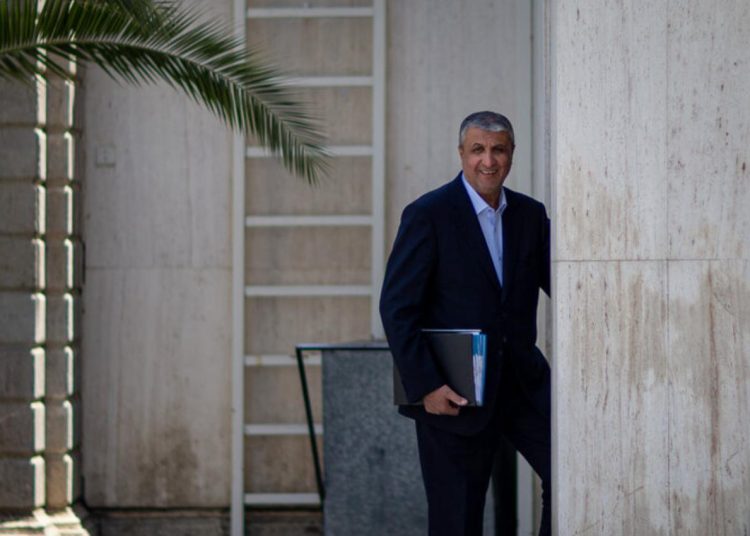Iran’s top nuclear official has signaled a potential shift in the country’s policy regarding inspectors from adversarial states, suggesting Iran could reconsider accepting American inspectors if a nuclear agreement is reached.
Mohammad Eslami, head of the Atomic Energy Organization of Iran (AEOI), addressed reporters on the sidelines of a cabinet meeting today. When asked about the possibility of allowing American inspectors to monitor Iran’s nuclear program, Eslami stated, “Regarding countries that have shown hostility towards us and acted improperly over these years, we have always tried not to accept inspectors from those countries, just as they reciprocate by not accepting Iranian inspectors.”
However, Eslami added a crucial caveat linked to the current diplomatic efforts. “In the current negotiation conditions, if issues are raised and an agreement is reached, and Iran’s demands are taken into consideration, then we will reconsider accepting American inspectors through the International Atomic Energy Agency (IAEA).”
His remarks come as a deputy director from the IAEA is currently in Tehran, following up on the understanding made in a March 2023 statement concerning the remain locations. Eslami expressed hope that the IAEA would act professionally and “reduce the Zionist current’s influence,” adding that there is a commitment from IAEA Director General Rafael Grossi to resolve the remaining two locations.
Eslami also directly addressed recent reports suggesting proposals in negotiations for Iran’s uranium enrichment activities to be conducted in Persian Gulf littoral states. He firmly rejected such notions. “Our position is legal and lawful; enrichment is the basis of the nuclear industry,” he asserted, likening the idea to allowing a substation but forbidding a power plant.
He emphasized that taking away enrichment is akin to taking away Iran’s entire industry and constitutes a “red line” for the Islamic Republic. Eslami maintained that Iran is transparent on this point, reiterating that “enrichment is definite” for civilian purposes and stressing Iran’s commitment to not pursuing nuclear weapons. “We will not enrich for nuclear weapons, and we are committed to this,” he stated, while also noting that no formal proposal regarding a consortium for enrichment has been received.
The AEOI chief firmly dismissed any notion of suspending enrichment in Iran, calling it “not at all an issue.” He argued that the percentage of enrichment is a technical matter dependent on its application, not a political one. High enrichment, he explained, is not necessarily for military use but is required for sensitive detectors and other components used in nuclear processes. He cautioned against using political methods and psychological operations to campaign against this technical necessity.
Eslami detailed the severe consequences for Iran’s domestic industries if enrichment were to cease. He highlighted the immediate impact on healthcare, noting that roughly 1 million people annually rely on radiopharmaceuticals produced using 20% enriched fuel from the Tehran Research Reactor. “Stopping enrichment would halt this production.” Furthermore, he warned of disruptions to other systems and devices requiring radiation, accelerators, and targets for producing food and pharmaceutical materials. “Research reactors and basic science, including neutronic calculations and software development, which depend on enrichment for isotope production and instrumentation, would also cease operations, thereby depriving society of a wide range of essential services directly linked to this technology.”






